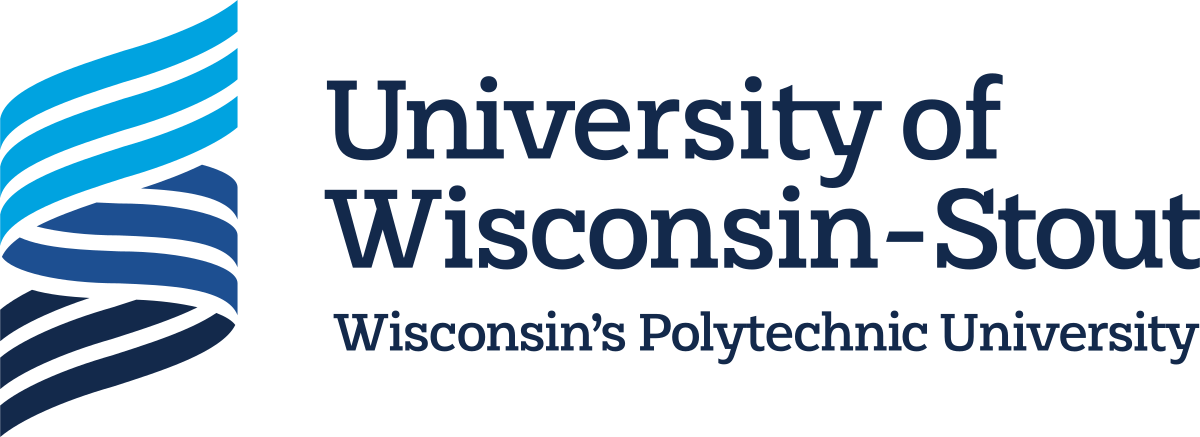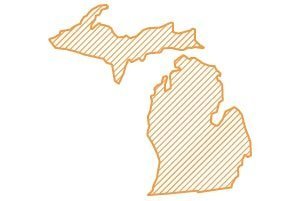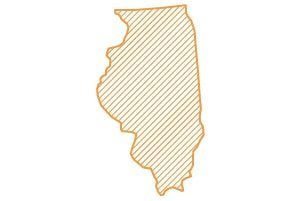If you’re interested in pursuing a Master’s in Psychology in Wisconsin, you’ve come to the right place. This degree can open doors to many career paths, including clinical practice, research, and more. Whether you’re a recent graduate looking to further your education or a working professional seeking to advance your career, Wisconsin offers a diverse range of programs to suit your needs and interests.
Wisconsin is a vibrant nucleus for those captivated by the intricate field of psychology. As a student in this region, you will benefit from top-tier research facilities and innovative learning techniques. Notably, Wisconsin also provides a unique insight into the data and statistics related to mental health. This offers a valuable opportunity for a more profound understanding of the needs of your clients and the community at large.
To top it all, if your ultimate goal is to become a licensed psychologist in Wisconsin, the state also offers substantial resources and guidance to assist you in your journey. Understanding the pathways and processes toward licensure in psychology will help pave your way to making a significant impact in the field. This supportive academic and professional environment makes Wisconsin an ideal location for those seeking to excel in their psychological pursuits.
Wisconsin Master’s in Psychology Programs
Wisconsin is home to several universities that offer master’s programs in psychology. If you’re passionate about understanding human behavior and are looking to further your education in this field, then this might be the best option. It also offers Doctorate and Ph.D. programs in psychology to acquire the knowledge and skills necessary to take your career to the next level.
Master of Arts in General Psychology
Cardinal Stritch University – M.A. in General Psychology

The Master of Arts (M.A.) in Psychology (General) program offered by Cardinal Stritch University, accredited by the Higher Learning Commission (HLC) and the Wisconsin Department of Public Instruction (DPI), is designed for students who seek a master’s degree in psychology but do not require license eligibility in the state of Wisconsin. This includes students who are interested in pursuing a Ph.D. or Psy.D., as well as those who plan to enter a career in psychometry or clinical work in jurisdictions that do not require a degree that complies with the 60-credit CACREP 2016 guidelines.
The program offers courses that cover a broad range of topics, including Theories of Personality, Social Psychology, Cognitive Psychology, and Research Methods. Students will also take courses in specialized areas such as Neuropsychology, Abnormal Psychology, and Health Psychology. Graduates of the program will be well-prepared to pursue further studies in psychology or to enter a career in fields such as research, counseling, or human resources.
- Location: Milwaukee, Wisconsin
- Us News Ranking: 331-440 in National Universities
- Cost per credit: Cardinal Stritch University charges $865 per credit for their psychology programs.
Master of Arts in Clinical Psychology
Cardinal Stritch University – Master of Arts in Clinical Psychology

Cardinal Stritch University offers a Master of Arts in Clinical Psychology program that is designed for individuals interested in pursuing a master’s-level clinical practice or planning to obtain a Ph.D. or Psy.D. The program is based on a scientist-practitioner model that trains students to understand research and theory in an ethical and critical manner.
The program is accredited by the Higher Learning Commission and the American Psychological Association. With a 60-credit curriculum, the program provides students with 700-1000 hours of internship fieldwork, making them experienced and mature practitioners acclimated to real-world practice.
Coursework includes integration of science and practice, with an emphasis on ethics and the roles culture, race, and gender play in assessment and therapy. Upon completion, students are eligible for licensure in the state of Wisconsin, making it the only terminal master’s program in clinical psychology with license eligibility in the state.
- Location: Milwaukee, Wisconsin
- Us News Ranking: 331-440 in National Universities
- Cost per credit: The Clinical Psychology Master’s program at Cardinal Stritch University charges a cost of $865 per credit.
Master of Science in Community Psychology
Alverno College – Master of Science in Community Psychology

The 60-credit Community Psychology Master’s program at Alverno College is specifically designed for busy working professionals, with classes meeting on weekends and/or evenings to accommodate a flexible pace of learning. The program is fully accredited by the Higher Learning Commission and follows the licensure requirements of the state of Wisconsin.
A supervised practicum experience of 700 hours is a crucial component of the program, which is completed towards the end of the course. Alverno College will assist students in finding a suitable placement, and in certain cases, students may be able to undertake part of their practicum at their current worksite, given appropriate work and supervision arrangements.
- Location: Milwaukee, Wisconsin
- Us News Ranking: 62 out of 167 Regional Universities Midwest
- Cost per credit: For all programs under Masters in Philosophy, the tuition fee for part-time graduate students is calculated on a per-credit-hour basis, and the cost per credit hour is set at $2,015.
Click here for Masters in Community Psychology programs in the state of Wisconsin.
Master of Science in Applied Psychology
University of Wisconsin – Master of Science in Applied Psychology

The University of Wisconsin-Madison offers a Master of Science in Applied Psychology, which is designed to provide students with a solid understanding of the principles of psychology and how they can be applied in various fields. This program is fully accredited by the Higher Learning Commission.
To earn a Master of Science in Applied Psychology from the University of Wisconsin, students must complete a minimum of 30 credits. The coursework is designed to provide students with a comprehensive understanding of the various aspects of applied psychology, including research methods, psychological assessment, cognitive psychology, social psychology, and personality psychology.
- Location: Madison, Wisconsin
- Us News Ranking: 38 in National Universities
- Cost per credit: Tuition fees can vary depending on the degree program you choose at a range of $600 to $675 per credit hour.
Master’s Degree in School Psychology
University of Wisconsin River Falls – M.S.E. in School Psychology

The MSE in School Psychology program at the University of Wisconsin River Falls is accredited by the Wisconsin Department of Public Instruction and the National Association of School Psychologists, making graduates eligible for certification in several states, including Wisconsin, Minnesota, and Iowa. Graduates can also apply for listing in the National School Psychology Certification System.
All courses in the program are held in the evenings, either on the River Falls campus or at the UWRF Hudson Center in Hudson, WI. The program consists of three years of coursework and practicum field work, followed by a 1,200-hour internship which is often completed while employed as a school psychologist. The required courses in the program add up to 34 credits.
- Location: Milwaukee, Wisconsin
- Us News Ranking: 75 in Regional Universities Midwest
- Cost per credit: Master’s Degree (M.S.E.) tuition at Wisconsin is $432.96 per credit for residents, which increases to $480 per credit during the specialist degree years (Ed. S.).
Master of Science in Health Psychology
University of Wisconsin Milwaukee – Master of Science in Health Psychology

The University of Wisconsin- Milwaukee offers a Master of Science in Applied Psychology, with a specialization in Health Psychology. This program is fully accredited by the Higher Learning Commission and requires a minimum of 30 credits to complete.
The coursework in the Health Psychology specialization covers research and theories relevant to health promotion, stress management, chronic illness management, and the patient experience in the treatment setting. Moreover, students in this program will explore the causes and consequences of health disorders, such as coronary heart disease, hypertension, stroke, diabetes, AIDS, cancer, and arthritis.
- Location: Milwaukee, Wisconsin
- Us News Ranking: 331-440 in National Universities
- Cost per credit: For Wisconsin residents, the cost of tuition for master’s or graduate programs is $12,220.
Master of Science in Educational Psychology
University of Wisconsin Madison – Master of Science for Professional Educators (M.S.P.E) in Educational Psychology

One of the programs offered at the University of Wisconsin-Madison is the Master of Science for Professional Educators (MSPE) in Educational Psychology. It is a fully online program that integrates courses from three departments within the School of Education: Educational Psychology, Curriculum & Instruction, and Educational Leadership & Policy Analysis.
This university is fully accredited by the Higher Learning Commission and has a reputation for providing rigorous academic programs that prepare students for successful careers. To earn a Master of Science for Professional Educators in Educational Psychology from the University of Wisconsin-Madison, students must complete a minimum of 30 credits.
- Location: Madison, Wisconsin
- Us News Ranking: 38 in National Universities
- Cost per credit: Current tuition fee stands at $800 per credit, with the added advantage that segregated fees are not applicable for the program.
University of Wisconsin Madison – M.S. in Educational Psychology

The MS in Educational Psychology program at the University of Wisconsin Madison is accredited by the Higher Learning Commission and aims to provide students with a comprehensive understanding of human development, learning, and motivation, as well as research methods and statistics.
The program is designed as a 30-credit degree program with core courses in educational psychology, research methods, and statistics. Furthermore, students can choose to specialize in one of three areas: learning analytics, human development, or research methods. This allows students to tailor their education to their specific interests and career goals.
- Location: Madison, Wisconsin
- Us News Ranking: 38 in National Universities
- Cost per credit: Similarly, the cost per credit for tuition is currently set at $800
Master of Science in Clinical Rehabilitation Counseling – Rehabilitation Psychology and Special Education
University of Wisconsin Madison – M.S. in Clinical Rehabilitation Counseling – Rehabilitation Psychology and Special Education

The Master of Science in Clinical Rehabilitation Counseling – Rehabilitation Psychology and Special Education program at the University of Wisconsin-Madison is a 48-credit program. Students typically complete the program in two years of full-time study or three to four years of part-time study. The program includes both coursework and field experiences, with a total of 27 credits of required coursework and 21 credits of field experience.
The program is fully accredited by the Council for the Accreditation of Counseling and Related Programs (CACREP), which is a nationally recognized accrediting body for counseling programs. Graduates of this program are eligible to apply for the national Certified Rehabilitation Counselor (CRC) credential, and also meet the educational requirements to apply for a training license as a professional counselor in the state of Wisconsin (Licensed Professional Counselor).
In addition to the required coursework, students may also have the opportunity to choose from a range of elective courses that are tailored to their interests and career goals. Elective courses may cover topics such as substance abuse counseling, vocational rehabilitation, disability studies, and more.
- Location: Madison, Wisconsin
- Us News Ranking: 38 in National Universities
- Cost per credit: We advise you to contact directly by their email at onwisconsin@admissions.wisc.edu with any questions on program cost & related learning fees.
Wisconsin Psychology Licensing and Resources
Whether you’re interested in becoming a licensed clinical psychologist or pursuing a career in research, understanding the licensing requirements and available resources is essential to success in this field. The state of Wisconsin offers numerous opportunities for psychologists, including a range of licensing options and professional organizations to support growth and development.
Wisconsin Psychologist License Lookup: The Wisconsin Psychologist License Lookup is an online tool provided by the Wisconsin Department of Safety and Professional Services that allows individuals to search for licensed psychologists in the state. This lookup is an important resource for anyone seeking the services of a licensed psychologist, as it provides information on the status and disciplinary history of licensed psychologists.
The Wisconsin Psychologist License Lookup can be accessed on the Wisconsin Department of Safety and Professional Services website. Users can search for licensed psychologists by name, license number, or location. The lookup provides information on the psychologist’s name, license number, status, issue date, expiration date, and disciplinary history, if any.
Wisconsin Psychology Examining Board: The Wisconsin Psychology Examining Board is responsible for regulating the practice of psychology in the state of Wisconsin. This board oversees the licensing of psychologists and ensures that they meet the necessary qualifications to practice psychology in the state.
Their organization also investigates complaints against licensed psychologists and take appropriate action if any violations of professional standards are found. In addition, the board is responsible for setting and enforcing ethical standards for psychologists to ensure the safety and well-being of the public.
National Alliance on Mental Illness Wisconsin: While NAMI Wisconsin primarily focuses on supporting individuals and families affected by mental illness, their programs and resources can also be beneficial for psychologists. By providing education and support for individuals with mental illness, NAMI Wisconsin can help psychologists better understand the experiences of their clients and provide more effective treatment.
Moreover, their advocacy efforts can help psychologists stay up-to-date with changes in mental health policies and laws, allowing them to better serve their clients and advocate for their needs.
Wisconsin Psychiatric Association: The Wisconsin Psychiatric Association (WPA) is an organization that represents psychiatrists and physicians in Wisconsin, with a primary focus on their practice. However, they also work to support and advocate for the mental health needs of the broader community, which includes psychologists. Collaboration and interdisciplinary work with psychiatrists are potential benefits for psychologists from the WPA.
Not only that, but the WPA can also keep psychologists up-to-date with the latest advancements in psychiatric treatment and keep them in the loop about any changes in public policies that might affect their practice. By staying in touch with the WPA, psychologists can stay ahead of the curve and ensure they are providing the best possible care to their clients.
Wisconsin Association for Behavior Analysis: The Wisconsin Association for Behavior Analysis (WisABA) was established in 2004 with the goal of creating a professional development and networking platform for behavior analysts in Wisconsin. WisABA is dedicated to advancing the field of behavior analysis and promoting high-quality practices through education, advocacy, and collaboration.
Through various events, such as annual conferences, workshops, and webinars, WisABA provides behavior analysts with opportunities to expand their knowledge, improve their skills, and stay up-to-date with the latest research and best practices in the field. In addition to professional development, WisABA also serves as a platform for networking, allowing behavior analysts to connect with peers, share knowledge and resources, and build relationships within the community.
Wisconsin Psychological Association: The Wisconsin Psychological Association (WPA) is a group dedicated to advancing the field of psychology in Wisconsin. Through offering access to the latest research, networking opportunities, and continuing education, WPA provides a wealth of resources to its members.
A key focus of the WPA is advocating for policies that benefit both psychologists and their clients. The organization also provides a space for psychologists to connect with one another and work collaboratively to enhance the quality of care they provide. This allows members to share knowledge and resources, ultimately leading to better outcomes for patients.
Wisconsin School Psychologists Association: The Wisconsin School Psychologists Association (WSPA) is a professional organization committed to meeting the ongoing professional development needs of school psychologists throughout the state.
To achieve their goals, the WSPA offers a range of professional development opportunities for school psychologists, including access to training sessions, workshops, and conferences. By providing these learning opportunities, the WSPA helps school psychologists stay up-to-date with the latest research and best practices in the field, ensuring that they have the necessary skills and knowledge to offer quality services to their students.
Wisconsin Psychoanalytic Institute and Society: Since 1993, the Wisconsin Psychoanalytic Institute and Society (WPI) has been at the forefront of offering psychoanalytic training in Wisconsin.
By offering a range of comprehensive training programs in psychoanalysis, including full academic courses and continuing education courses, the WPI equips students with the necessary skills and knowledge to practice psychoanalysis in a clinical setting. This helps to improve mental health services in the region by promoting the use of psychoanalytic theories and techniques through their training programs.
Wisconsin Council of Child and Adolescent Psychiatry: The Wisconsin Council of Child and Adolescent Psychiatry (WISCCAP) is a state non-profit organization comprising child and adolescent psychiatrists from across Wisconsin. As a psychologist, you can benefit from WISCCAP’s mission to promote mentally healthy children, adolescents, and families through research, training, advocacy, prevention, comprehensive diagnosis and treatment, peer support, and collaboration.
Psychologists can benefit from WISCCAP by gaining access to the latest research, training, and best practices in the field of child and adolescent psychiatry. Staying up-to-date with the latest developments in the field can help psychologists provide more effective care to their young patients, which ultimately benefits the mental health of children, adolescents, and families.
Wisconsin Data and Mental Health Statistics
It is essential for individuals and organizations in the field of psychology to comprehend the data and statistics related to mental health in Wisconsin. By having a thorough understanding of mental health statistics, professionals can gain insight into the needs of their clients and communities, and work towards improving mental health outcomes.
Thankfully, Wisconsin provides a plethora of resources to help individuals and organizations access vital mental health data and statistics.
- According to the Wisconsin Department of Health Services, suicide was the tenth leading cause of death in Wisconsin in 2020, with a total of 1,068 deaths by suicide.
- In 2020, Wisconsin reported a total of 871 opioid-related overdose deaths, according to the Wisconsin Department of Health Services.
- The Wisconsin Department of Health Services reports that in 2020, there were 14,166 hospitalizations due to mental health and substance use disorders in Wisconsin.
- The prevalence of depression among adults in Wisconsin was 7.9% in 2018, according to the Centers for Disease Control and Prevention.
- Wisconsin had 9,399 emergency department visits due to intentional self-harm in 2020, as reported by the Wisconsin Department of Health Services.
- As per the Centers for Disease Control and Prevention, the prevalence of binge drinking among adults in Wisconsin was 22.5% in 2018.
- Reported by the National Alliance on Mental Illness, approximately 304,000 adults in Wisconsin experienced a serious mental illness in 2020.






